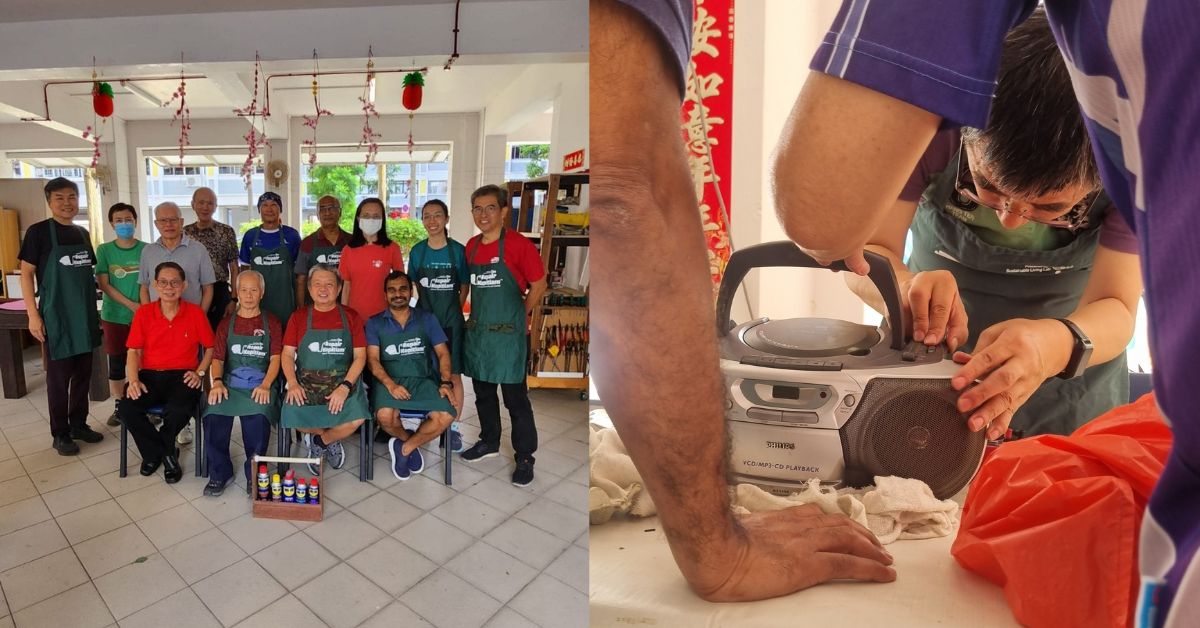
Every last Sunday of the month, ground-up initiative Repair Kopitiam organises volunteer-led fix-it sessions at nine locations around Singapore. Anyone who books a slot and brings along their spoiled household electric items like fans, blenders, kettles and irons gets to have them repaired free of charge.
Sound too good to be true? Well, that’s ‘cos it is. “We are not a repair service. Our idea is to teach people the skills to do-it-yourself (DIY). So we will always ask them to join us, unless they are really at the level where they can’t even use a screwdriver,” says volunteer Jonathan Chow with a laugh.
If you manage to teach one person, they can help all their friends and family fix their stuff. Multiply that across Singapore, it can make a sizeable impact on reducing what we call throwaway culture,
he adds.
The retired business owner and engineer by trade is one of many seniors volunteering their time with Repair Kopitiam. The 65-year-old can be found monthly at the initiative’s Pasir Ris location, where he acts as venue organiser.
Just in time for World Earth Day (22 April), SilverStreak speaks to Jonathan and a couple of his fellow silver volunteers to find out why Repair Kopitiam can make a world of difference when it comes to promoting sustainability for people of all ages – while providing for seniors in particular, a meaningful way to use their skills in retirement.
Advertisement
Save money and reduce waste with Repair Kopitiam
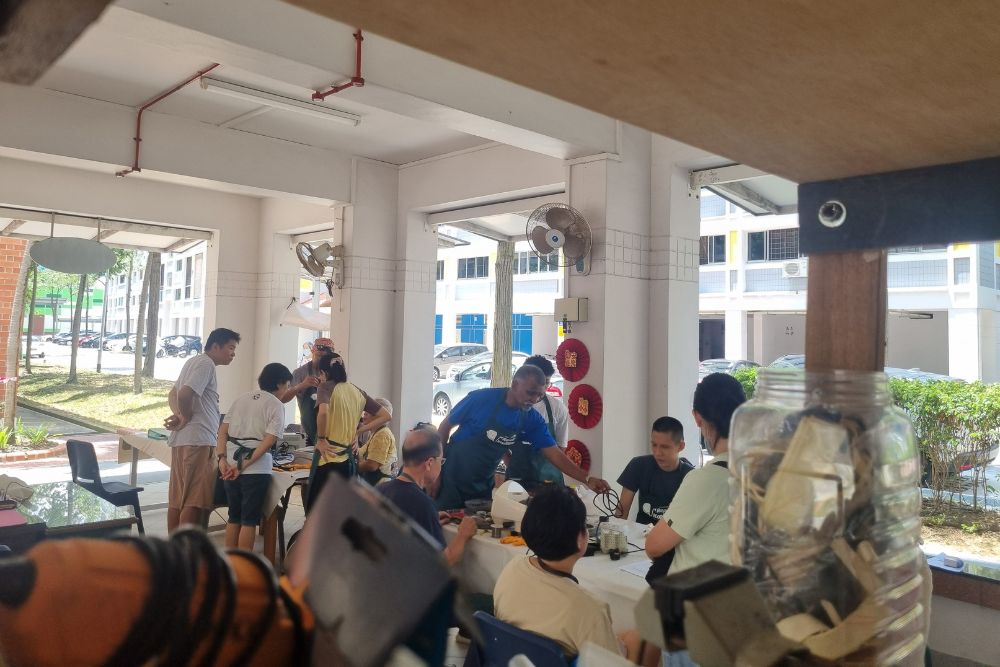
Apart from malfunctioning home electric items, volunteers of Repair Kopitiam deal with torn clothes, peeling shoes, damaged furniture and squeaky luggage wheels.
Items that they won’t repair include dangerous items, like microwave ovens or industrial equipment; contraband items, like high-powered laser pointers and e-cigarettes; and items that require licenses or advanced knowledge, like handphones, laptops or e-bikes.
That said, participants are encouraged to bring anything and everything that’s off the exclusion list.
After all, most of these “can be fixed with a simple replacement part that often costs just a couple of dollars, or the knowledge of where to apply some lubricating oil,” says Jonathan, who has been with the organisation since 2019.
This not only reduces the volume of waste heading into Singapore’s landfills, but also the amount of money spent on trips to the repair centre – or as is usually the case nowadays, on an entirely new appliance.
Appliances are so much cheaper nowadays, but they aren’t made to last as long. This encourages a throwaway culture, which is precisely what we’re looking to get rid of at Repair Kopitiam,
he says.
You won’t believe how many fans I’ve found just dumped at the void deck that are still in great working condition, apart from a faulty fuse or capacitor.
James Tan, a fellow silver volunteer with a day job in the marine engineering industry, pipes up,
I always tell my friends – if you need a standing fan, come and look for me. Don’t buy one!
The 59-year adds with a laugh,
Cherished items given second lease of life thanks to seniors’ skills
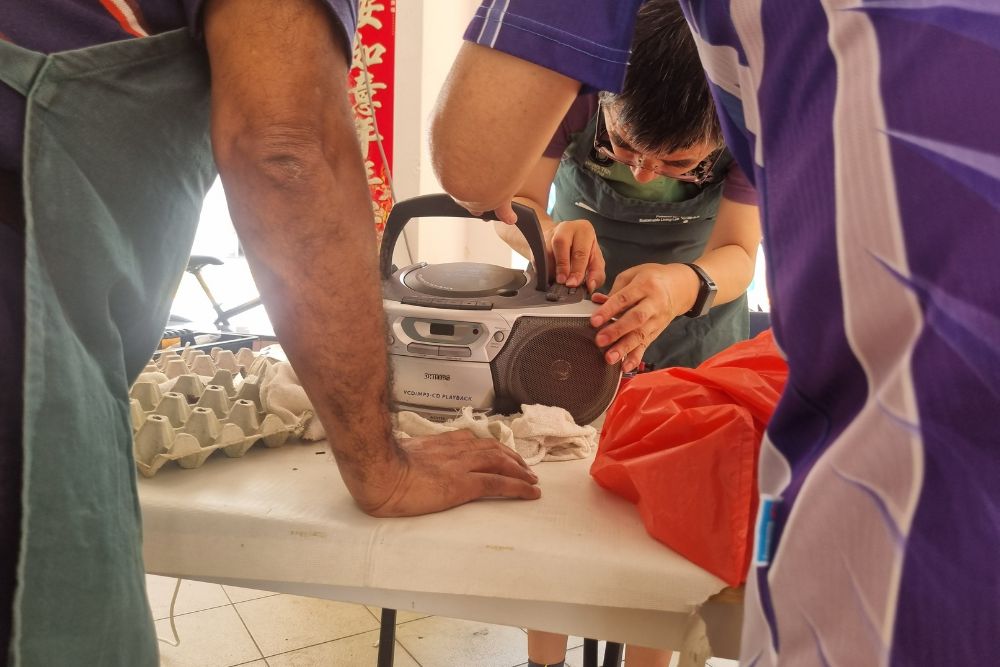
Empowering others to repair appliances and furniture life takes on deeper meaning when it is a treasured item that gets revived.
Seniors, in general, were taught to value appliances as they were much more expensive in the olden days, but also of much better quality. So we do get a lot of them coming in with sentimental items that they would never think of getting rid of,
says Jonathan.
Indeed, he later shows us a picture of a senior who’d successfully resuscitated a treasured clock that’d been hanging in his living room for more than 40 years. Later on, we spot another silver getting an old-school radio fixed, which he says he’s been using for over 20 years to listen to the news.
This is the kind of sentimental value that money can’t buy,
Jonathan adds.
Repair Kopitiam offers volunteering with a dose of kampung spirit
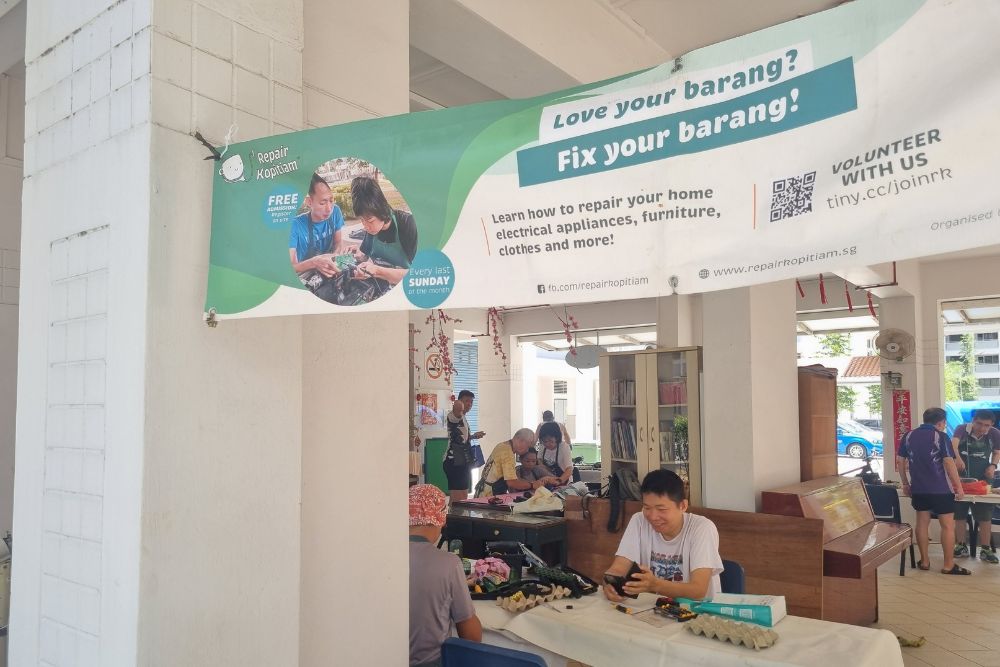
Above all, the senior volunteers of Repair Kopitiam agree that volunteering with the organisation provides ample opportunity for growth and social interaction.
Everyone, regardless of age, nationality or skill level, is able to volunteer with Repair Kopitiam once they’ve undergone a 10-day training course, split across Sundays for around two to four hours at a stretch.
The free course comprises both theoretical and practical lessons in the basics of electrical, mechanical and fabric repair.
There are also supplementary seven-hour handyman courses in other domains of repair that are eligible for subsidies under the National Silver Academy and can be paid for using SkillsFuture credits.
But even if you sign up for the course, there is no obligation at all to come back and contribute – though we’d love to see you back to help, of course,
says James, who is a senior coach with Repair Kopitiam.
"At the end of the day, we want to teach as many people as possible, so that they can perform repairs within their own communities."
The structure of the six-hour-long monthly repair sessions also offers silvers with a “testing ground” for their newfound repair skills, adds senior coach Balaji KG, 51, who works in banking.
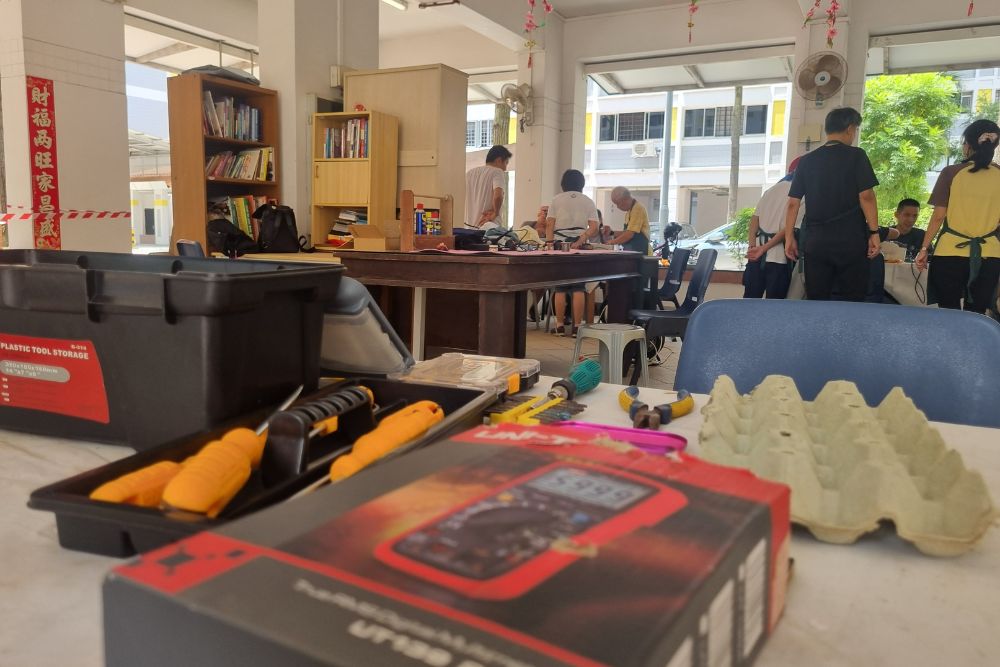
This is a safe space for newcomers to test out the skills that they’ve learned. There is all the equipment at hand that they’ve learned about but won’t necessarily have at home, like a soldering iron – and they won’t have to worry about accidentally burning their house down, as they can always ask for advice from others. There will always be a few senior coaches around, so you get to learn from them even as you teach others,
he says.
It’s a very welcoming community. Everyone shares their knowledge and individual skills with each other, and we chip in where can. You can say that there’s a kampung spirit.
James concurs, saying,
Knock-on benefits for the silver generation as a result of their participation in hands-on learning and repair include cognitive maintenance, retention and improvement in fine motor skills and the development of problem-solving techniques, says Danny Lim, the 56-year-old administrator of Repair Kopitiam.
Those who aren’t confident with their hands and eyes aren’t left out, as they can still contribute to Repair Kopitiam in their own way, says Jonathan.
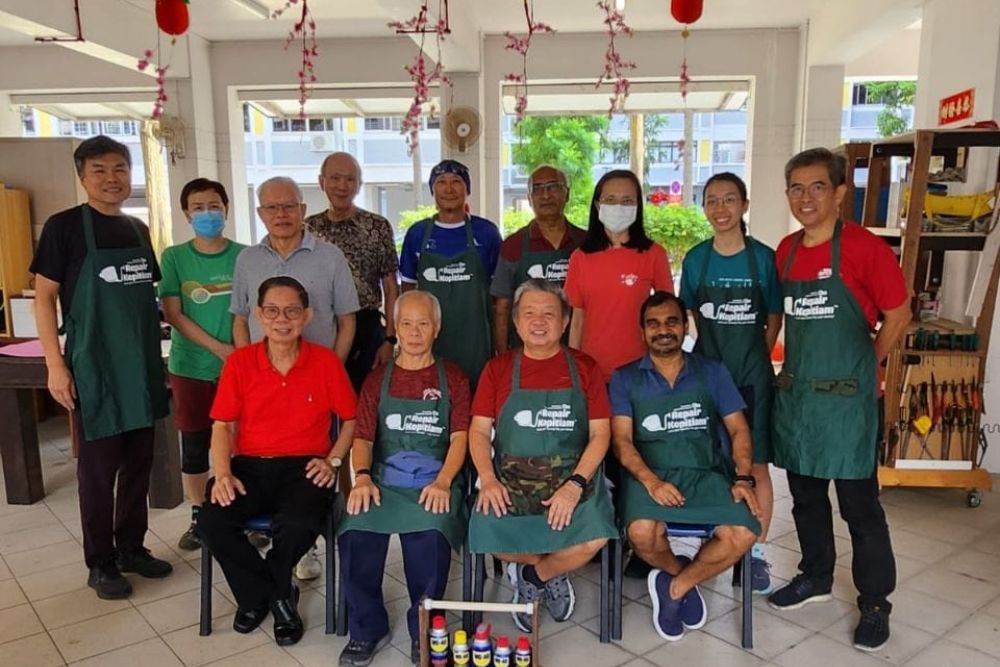
There are people who come down to help us with administrative tasks, like passing tools or collecting and distributing lunch. There are some people who just come down to chitchat, because they enjoy the camaraderie – it’s like a family, we sit together, eat together, and work together,
he adds.






